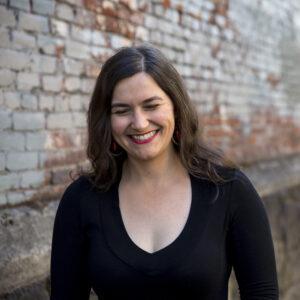
Senior Communications Manager
The Main Hall at the Redd, lined with vendors. Photo credit: Supreme Optics Photography
After a two year hiatus, we brought back our farm-to-institution connecting event.
In late September, we opened the doors of the Redd on Salmon Street to hospitals, schools, farmers, fishers, ranchers, and food businesses who were hungry for connection at Local Link. The vendor fair featured 44 food businesses with an array of products from loose leaf tea, locally milled grains, desserts and snacks for all dietary needs, pasture-raised meats, and plant-based proteins.
Check out the photos below to look back on Local Link and see how this connecting event took shape. All photos are by Deron Patterson of Supreme Optics Photography.
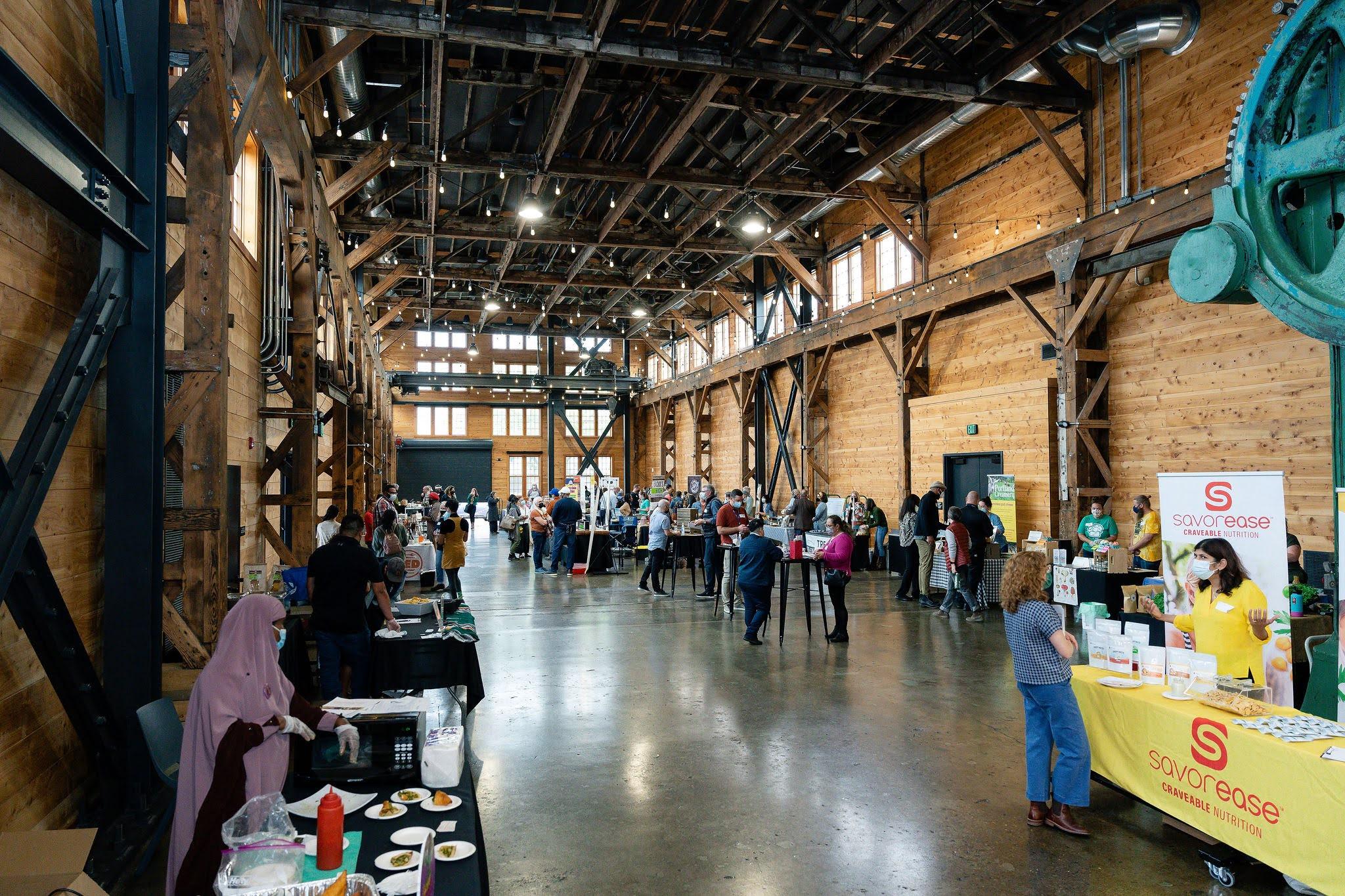
The Redd Main Hall where Local Link was held from 9am-noon on September 28, 2022.
During the event, we saw a growing multicultural and multiracial network of food businesses connecting with institutional buyers. Many of the vendors were new to Local Link. And, there were many cohort members from the Institutional Purchasing Pathways and Plant Forward Future projects in attendance—vendors with whom we’ve been working with directly to tailor their products for institutional markets and connect them to buyers interested in values-based purchasing.
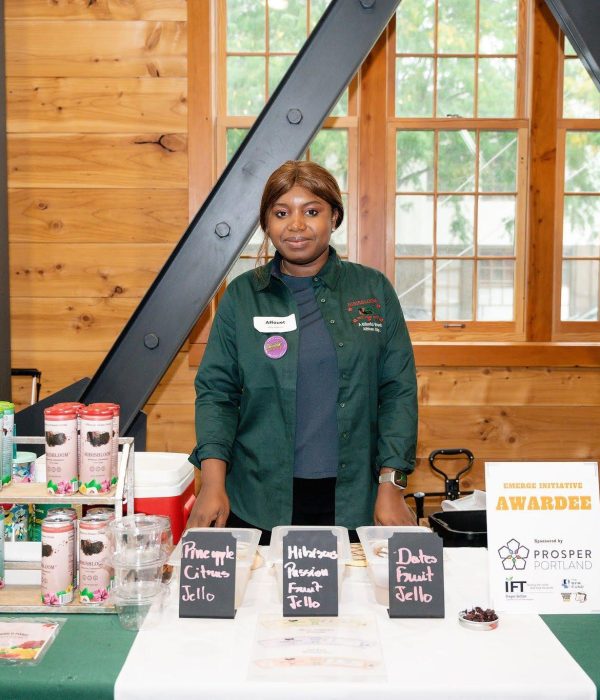
Affouet Price of Hibisbloom with a selection of West African-inspired beverages and fruit-forward jello. The round, purple placard (bottom left) indicates that Affouet is a member of the Institutional Purchasing Pathways program.
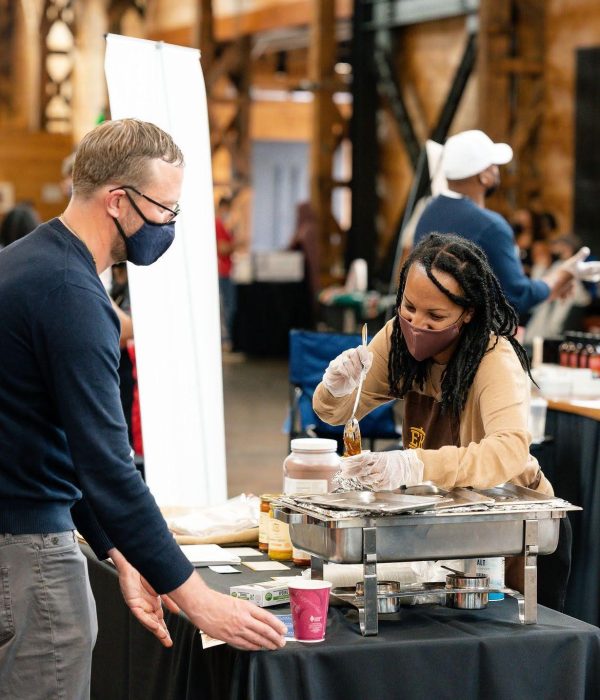
Ecotrust team member, Tyson Rasor, samples Ethiopian simmer sauce from Eleni Woldeyes, proprietor of Eleni’s Kitchen.

“
Opportunities for institutional food buyers and local producers to connect in-person nurture the relationships and creativity that are vital to getting more local and culturally relevant foods into cafeterias and kitchens.
—Angela Hedstrom, Community Food Systems Program Manager, Ecotrust
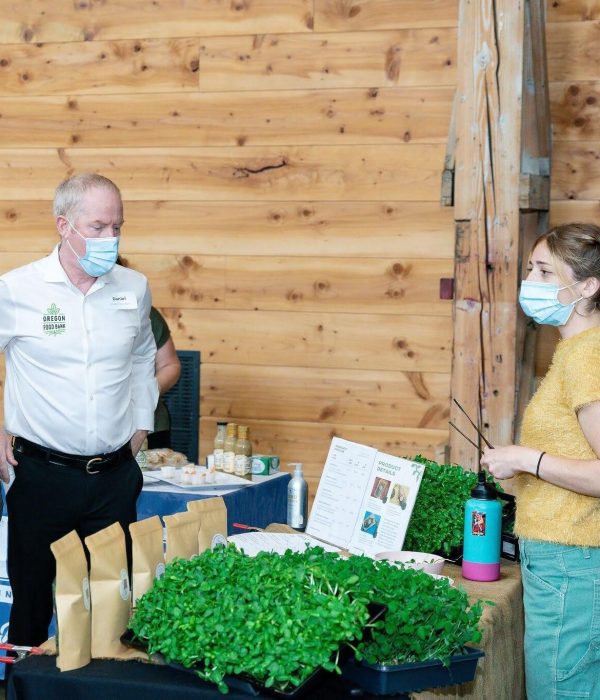
Representatives from Oregon Food Bank discuss microgreens with Skyler Pearson from Nexgarden.
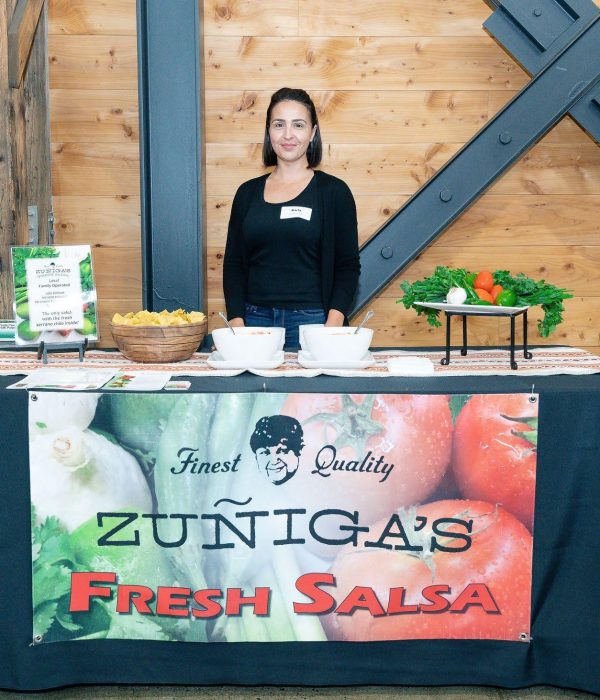
Karla Lawrence with Zuniga’s Fresh Salsas.
Most attendees who responded to our post-event survey said they found the event useful for their business, would attend again, gained knowledge of at least one new market connection, and made between three to six connections.
In survey comments, attendees noted that the relaxed atmosphere and focus on institutional buyers were helpful to having in-depth conversations. In a survey response, one vendor noted the best thing about the event was, “It wasn’t too crowded, which gave time to make individual connections and answer questions.” Another replied, “[It was a] relaxed space with a lot of room; [there were] quality buyers who had a chance to review vendors ahead of time.”
On the buyer side, we received insight that some connections happening in the room have been in progress for quite some time and were aided by the opportunity for in-person conversation. In an email following the event, Whitney Ellersick of Portland Public Schools wrote, “Thank you so much for the amazing event. So inspirational! I was so happy to reconnect with others and continue our conversations from 2019, or meet new friends.”
We are looking forward to supporting these connections as they progress.
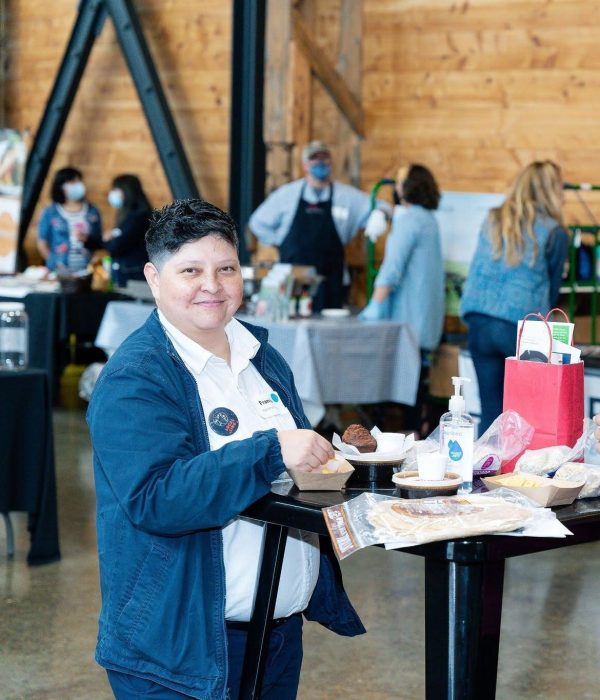
Tall cocktail tables were set in open spaces to allow buyers to enjoy their samples and provide space for more in-depth conversations.
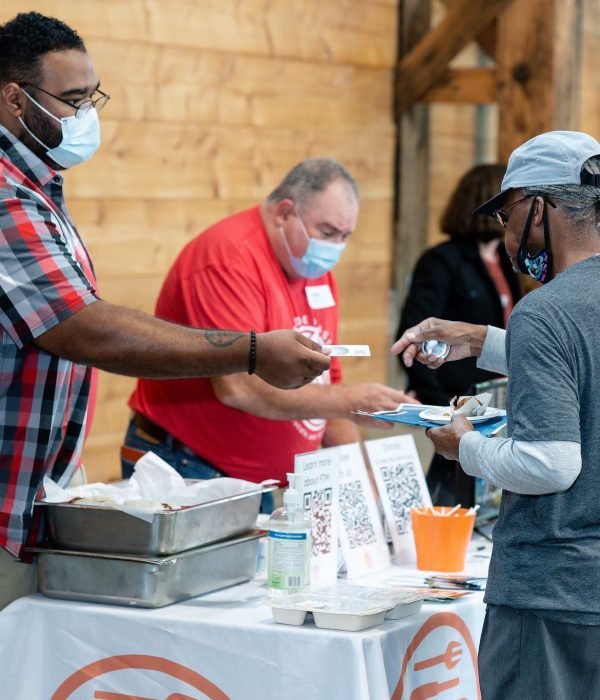
Jacob Valentine of Feed the Mass connects with Willie Chambers of Super Natural Foods.
“
This work is relational. So the importance of an in-person event like Local Link cannot be understated. Outcomes of farm-to-institution projects may be measured in the pounds of local food purchased or dollars spent by a hospital, but project success encompasses so much more.
With farm-to-institution work, we are slowly but surely shifting our food system to one that is more equitable, sustainable, and resilient. Meaning that large institutions like hospitals and schools pay the true cost of food and invest in and partner with local producers. And that starts with human connections and building trust.
—Amber Hansen, Regional Program Manager, Healthy Food in Health Care
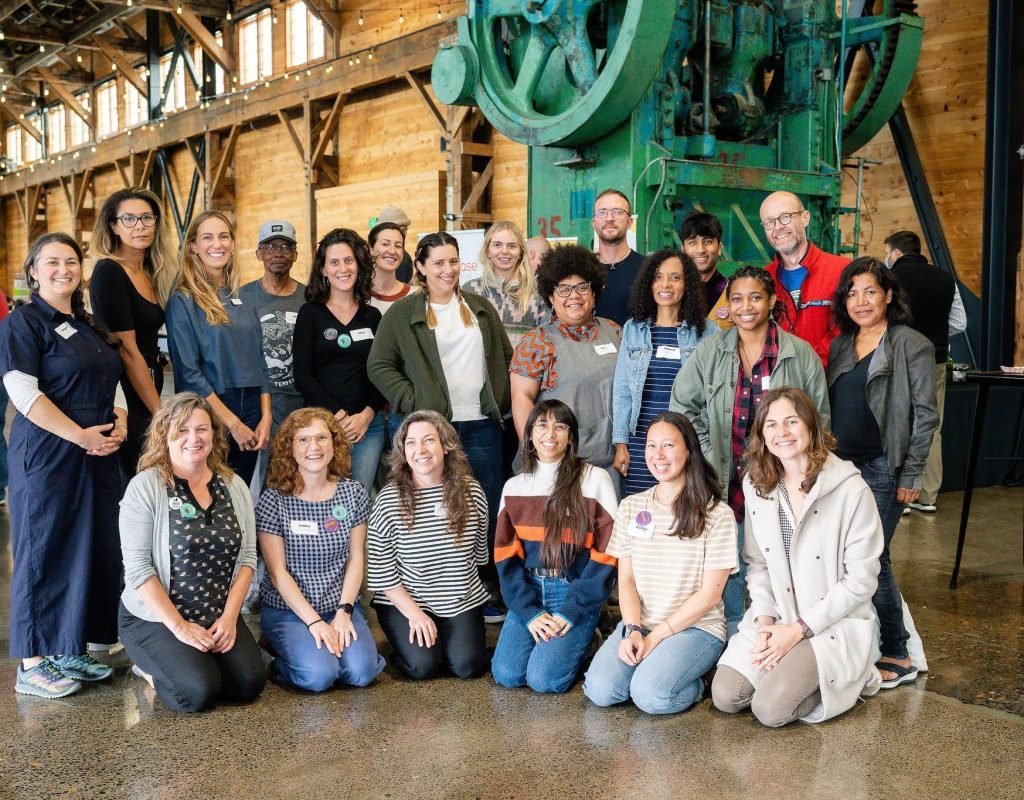
From event planning, to facilitating connections, and keeping facilities running smoothly, it takes a big team to make an event like Local Link happen. From top left: Megan Foucht, Raphael Guzman, Lily Abood, Willie Chambers from Super Natural Foods, Maia Larson, Sara Telzer, Felicia Murray, Jennifer-Jane Jeffries, Keia Booker, Tyson Rasor, Jamese Kwele, Akshay Hariprasad, Ashley Weatherspoon, Bill Maddrell, and Silvia Cuesta from Friends of Family Farmers. Bottom row, from left: Amy Gilroy from Oregon Department of Agriculture, Amber Hansen from Health Care Without Harm, Angela Hedstrom, Sabrina Cerquera, Kaitlyn Rich, and Emma Sharer.
Local Link was supported by the USDA Local Food Promotion Program to help expand institutional markets for local and regional foods, and produced in partnership with the Oregon Department of Agriculture and Health Care Without Harm.
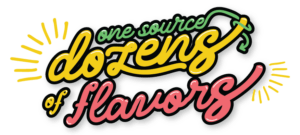
Current project
Connecting BIPOC-owned food businesses with hospital food buyers ready to go local